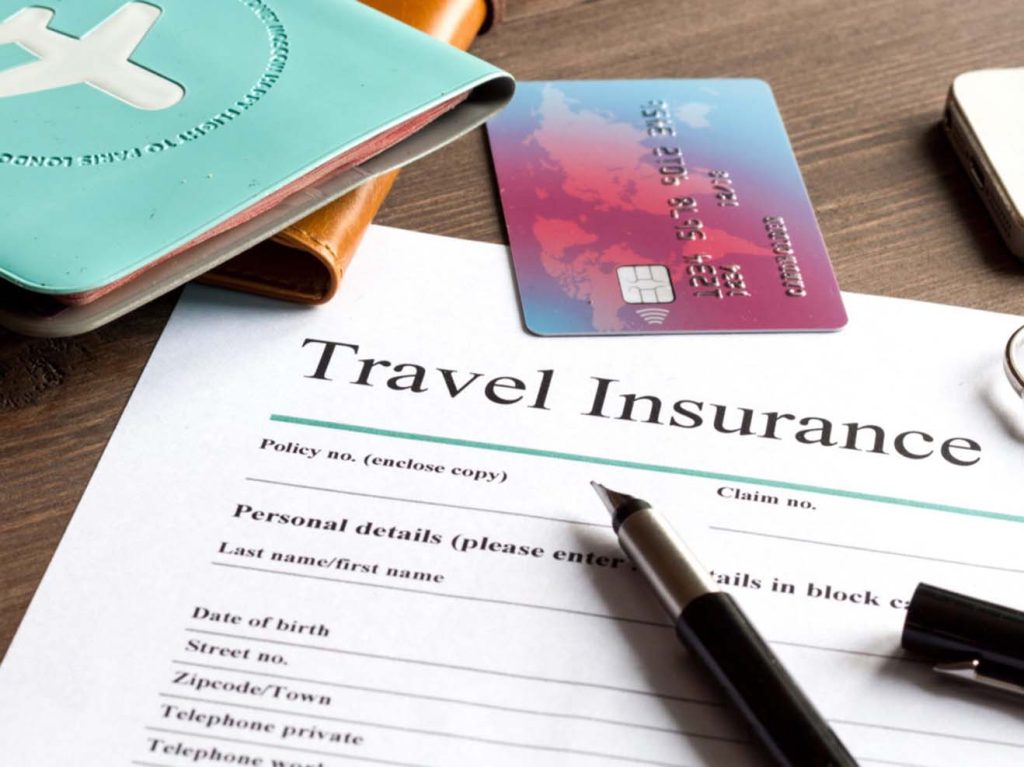Safeguarding Your Adventure: The Significance of Travel Insurance
It’s not just about packing the right clothes, booking the best hotels, or creating a detailed itinerary; it’s also about safeguarding your journey against unforeseen circumstances. One of the essential aspects of travel preparation, which often doesn’t receive the attention it deserves, is travel insurance.
I’ll share my insights into the world of travel insurance, emphasizing its vital role in ensuring your peace of mind while exploring new destinations. We’ll explore the various aspects of travel insurance, from understanding the coverage options to practical tips on choosing the right policy for your next adventure.
1. Why Travel Insurance Matters
Before we dive into the nitty-gritty of travel insurance, let’s begin with a simple yet crucial question: Why does travel insurance matter? To answer this, let me take you on a journey through some of my own travel experiences.
1.1 The Lost Luggage Debacle: A Lesson in Preparedness
Picture this: You’ve just landed in a foreign city, excited to embark on your adventure. However, when you arrive at the baggage carousel, your luggage is nowhere in sight. Panic sets in as you realize your suitcase, containing not just your clothes but also valuable electronics and irreplaceable mementos, has gone missing. This happened to me during a trip to Istanbul, and it was a frantic start to an otherwise fantastic journey.
As I stood at the luggage claim area, feeling a mix of frustration and anxiety, I remembered that I had purchased travel insurance. I contacted the airline to report the lost baggage and then reached out to my insurance provider. They guided me through the process, providing reassurance during a stressful moment. While I waited for my luggage to be located and delivered, the insurance covered my essential expenses, including clothing and toiletries, allowing me to continue exploring Istanbul without missing a beat.
1.2 The Unpredictable Health Crisis: Protecting Your Well-being
Another scenario: You’re exploring the stunning landscapes of New Zealand, hiking through breathtaking trails, when suddenly, you’re struck by a severe bout of food poisoning. Unable to continue your journey, you’re rushed to the hospital. I encountered a similar situation while in New Zealand, and it served as a stark reminder of how unpredictable health emergencies can be, even in the most idyllic locations.
In the hospital room, as I underwent treatment, I was relieved to know that I had comprehensive travel medical insurance. It covered not only the medical expenses but also the costs associated with rescheduling my flights and accommodations. This allowed me to focus on my recovery without worrying about the financial burden of unexpected medical bills.
1.3 Flight Delays and Trip Disruptions: Navigating Unexpected Hurdles

Flight delays, cancellations, or missed connections can throw a wrench into your travel plans. On a trip to Tokyo, I experienced an unexpected flight delay due to adverse weather conditions, which caused a domino effect on my itinerary. Missed tours, rebooking expenses, and the frustration of navigating the complex process of reorganizing my travel arrangements were all part of the ordeal.
In situations like these, trip interruption coverage came to my rescue. It reimbursed me for the additional expenses incurred due to the flight delay, including hotel accommodations and rescheduled activities. It also provided assistance in rearranging my travel plans, ensuring that I could still make the most of my time in Tokyo despite the initial setback.
1.4 Natural Disasters and Unforeseen Events: Adapting to the Unexpected
The world is full of unexpected events, from earthquakes to political unrest. During a visit to Bali, I had to deal with the eruption of Mount Agung, which led to airport closures and flight cancellations. It was a stark reminder that nature can disrupt your plans at any moment, regardless of how well you’ve prepared.
In such situations, having a travel insurance policy with trip cancellation coverage proved invaluable. It not only reimbursed me for the non-refundable portions of my trip but also provided assistance in making alternative travel arrangements. This allowed me to adapt to the changing circumstances and explore other parts of Bali while waiting for the situation to stabilize.
In each of these situations, one thing played a pivotal role in alleviating stress and helping me get back on track: travel insurance. Whether it was covering the cost of replacing lost belongings, reimbursing medical expenses, or providing compensation for trip disruptions, having the right travel insurance policy proved to be a lifesaver.
2. Understanding the Types of Travel Insurance
Now that you understand why travel insurance is essential let’s delve into the various types of travel insurance coverage available. It’s crucial to select the right policy that aligns with your travel needs and preferences.
2.1 Trip Cancellation and Interruption Insurance
Trip cancellation and interruption insurance offer protection in cases where you need to cancel your trip or cut it short due to unfore
seen events. Covered reasons typically include medical emergencies, the death of a family member, or travel advisories issued by the government. This type of insurance can reimburse you for non-refundable expenses, such as flights and accommodations.
Personal Experience: On a trip to Patagonia, a family emergency required me to return home unexpectedly, cutting my journey short. Trip interruption insurance covered the cost of my return flight and the unused portion of my accommodations, easing the financial burden during a challenging time.
2.2 Travel Medical Insurance
Travel medical insurance provides coverage for medical emergencies and related expenses while you’re traveling. This includes doctor’s visits, hospital stays, prescription medications, and emergency medical evacuation if necessary. It ensures that you receive the care you need without incurring exorbitant out-of-pocket costs.
Personal Experience: While trekking in the Himalayas, a fellow traveler suffered altitude sickness and needed emergency evacuation. Having evacuation insurance ensured they received timely medical care, which was critical in a remote mountain region.
2.3 Baggage and Personal Belongings Insurance
Baggage and personal belongings insurance covers the loss, theft, or damage to your luggage and valuable items during your trip. This includes items like electronics, jewelry, and travel documents. It can reimburse you for the cost of replacing these items.
Personal Experience: During a layover in Frankfurt, my suitcase was damaged by the airline. Baggage insurance covered the repair costs, ensuring that I didn’t have to bear the expense of fixing my luggage.
2.4 Travel Delay and Missed Connection Insurance
Travel delay and missed connection insurance can compensate you for additional expenses incurred due to flight delays, cancellations, or missed connections. This coverage can include expenses for meals, accommodations, and alternate transportation arrangements.
Personal Experience: During a trip to Buenos Aires, my connecting flight was canceled due to a strike by airline staff. Travel delay insurance covered my overnight stay in a hotel and the cost of rebooking my flight.
3. Choosing the Right Travel Insurance Policy

Now that you’re familiar with the types of travel insurance coverage available, how do you choose the right policy for your journey? Here are some essential factors to consider:
3.1 Destination and Activities
Consider your travel destination and the activities you plan to engage in. Some destinations may have higher health or safety risks, while adventurous activities like scuba diving or mountaineering may require specialized coverage.
3.2 Trip Duration and Frequency
The duration of your trip and how frequently you travel can impact your choice of insurance. If you’re a frequent traveler, annual multi-trip insurance may be more cost-effective than purchasing separate policies for each trip.
3.3 Coverage Limits and Exclusions
Read the policy documents carefully to understand coverage limits, exclusions, and any pre-existing conditions that may affect your coverage. Ensure the policy aligns with your specific needs and preferences.
3.4 Provider Reputation
Choose a reputable insurance provider with a track record of excellent customer service and timely claims processing. Reading reviews and seeking recommendations can help you make an informed decision.
3.5 Additional Benefits
Some travel insurance policies offer additional benefits such as coverage for rental cars, trip cancellation for any reason, or coverage for lost or stolen passports. Assess these extras to determine their relevance to your travel plans.
4. Investing in Peace of Mind
In the realm of travel, uncertainties are part of the adventure. However, with the right travel insurance policy in place, you can navigate these uncertainties with confidence, knowing that your journey is safeguarded. As a seasoned traveler, I can attest to the invaluable peace of mind that travel insurance provides.
My advice? Don’t leave home without it. It’s a small investment that can make a world of difference when you’re exploring the world. So, as you plan your next adventure, remember to protect it with the safety net of travel insurance. Your peace of mind is worth every penny.
Travel wisely, explore freely, and savor every moment of your journey, knowing that you’re prepared for whatever the world may bring your way.





